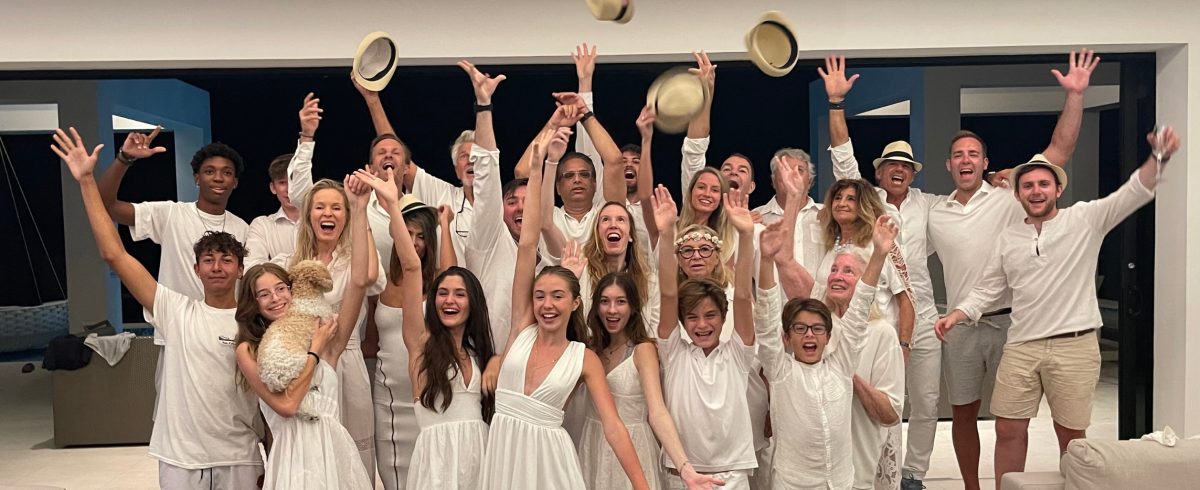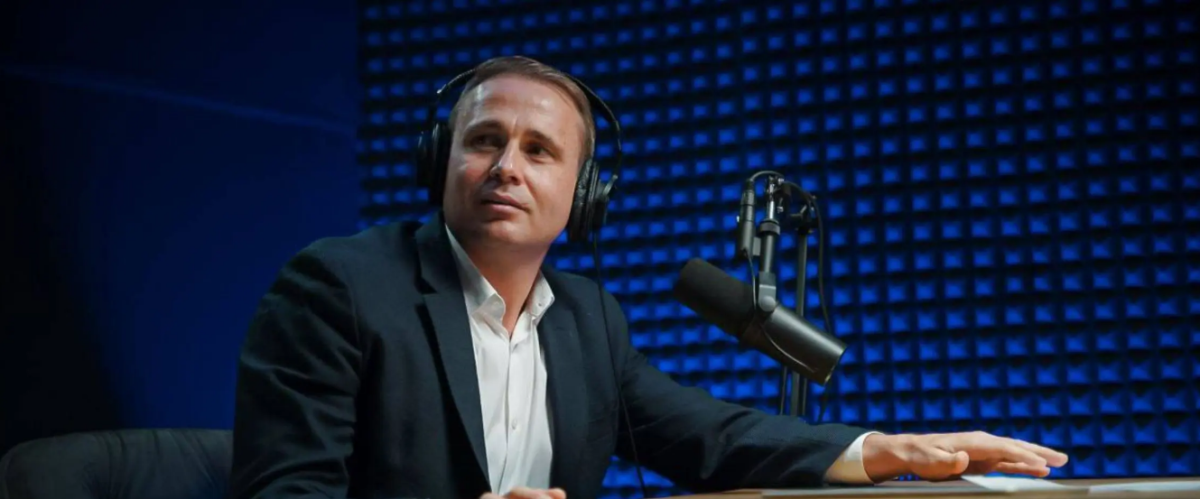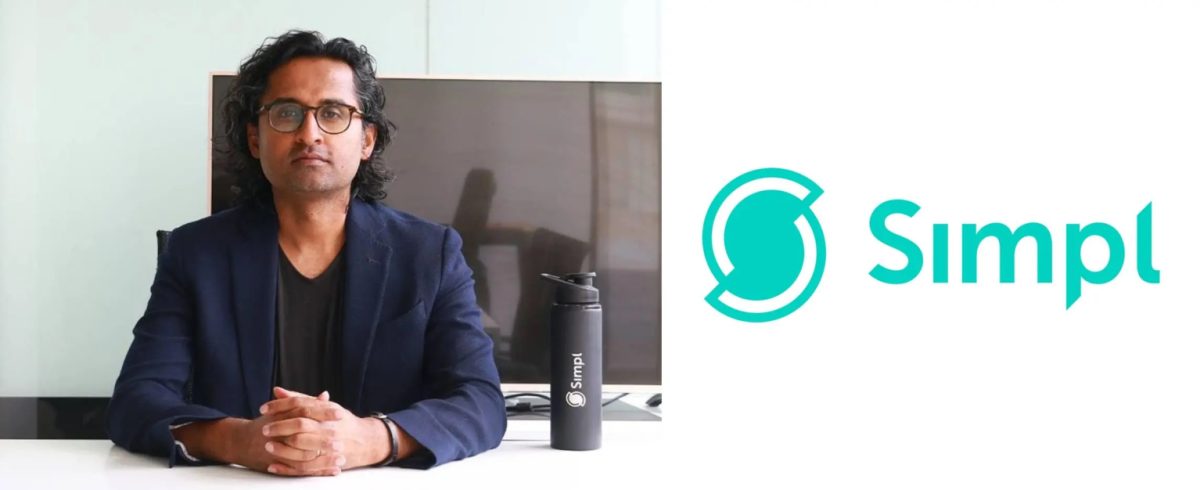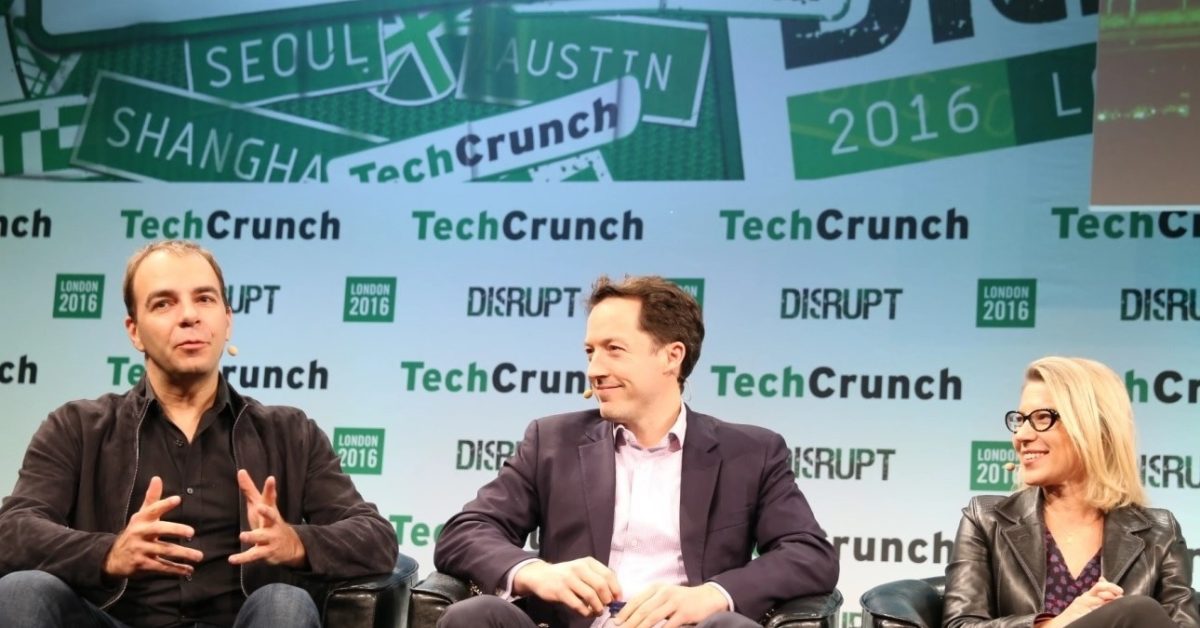私は、今いる家族と選んだ家族(家族といってもいいような素晴らしい友人たち)の両方からなる素晴らしい家族に恵まれている。 私たちはグリンダーバースであり、私はその一員であることを光栄に思っている。 私たちは互いを支え合い、笑い、喜び、無条件の愛に満ちた素晴らしい思い出と経験を共同創造することに時間を費やしている。
2022年は、この家族の大切さ、そしてそれを当たり前だと思ってはいけないということを強調し続けた。 私は3月から6月にかけて、父のがん治療の準備と対処を手伝うため、自分の生活を一時的に中断してニースに引っ越した。 彼の回復力、愛する家族、守護天使、そして免疫療法の驚異のおかげで完治したことを報告できてうれしい。
大小さまざまな健康問題が私の家族を悩ませた。 彼らとともに時間を過ごすことを思い出させてくれた。 また、彼ら全員が良くなっていることを報告できてうれしい。 久しぶりに故郷のニースでの滞在時間が延びたのを利用して、地元の友人や家族と有意義な時間を過ごした。

ソフィア・アンティポリスにあるムーラトグルー・テニス・アカデミーでは、弟のオリビエと2週間のトレーニングを受けた。 パデルのトーナメントにも何度か出場し、優勝もした。 エルデン・リングを一緒にプレーし、完成させたのも楽しかった。

プロヴァンスではケビン・ライアンの家族とも絆を深めることができた。 これは私の今年のハイライトのひとつであり、家族の健康問題への対処から解放される、驚くほど必要なひとときだった。 彼の家族に歓迎されたことに、感謝の念に堪えない。

フランスに行く前は、驚くほど順調だった。 FaceTimeでレベルストークにシャレーを購入したところである:史上最高の年!』で説明したように、私は今年の最初の2カ月をそこで過ごした。 数え切れないほどのスキー仲間をもてなし、狂ったようにヘリ・スキーをし、FJラボの年2回のブレインストームもそこで開催した。
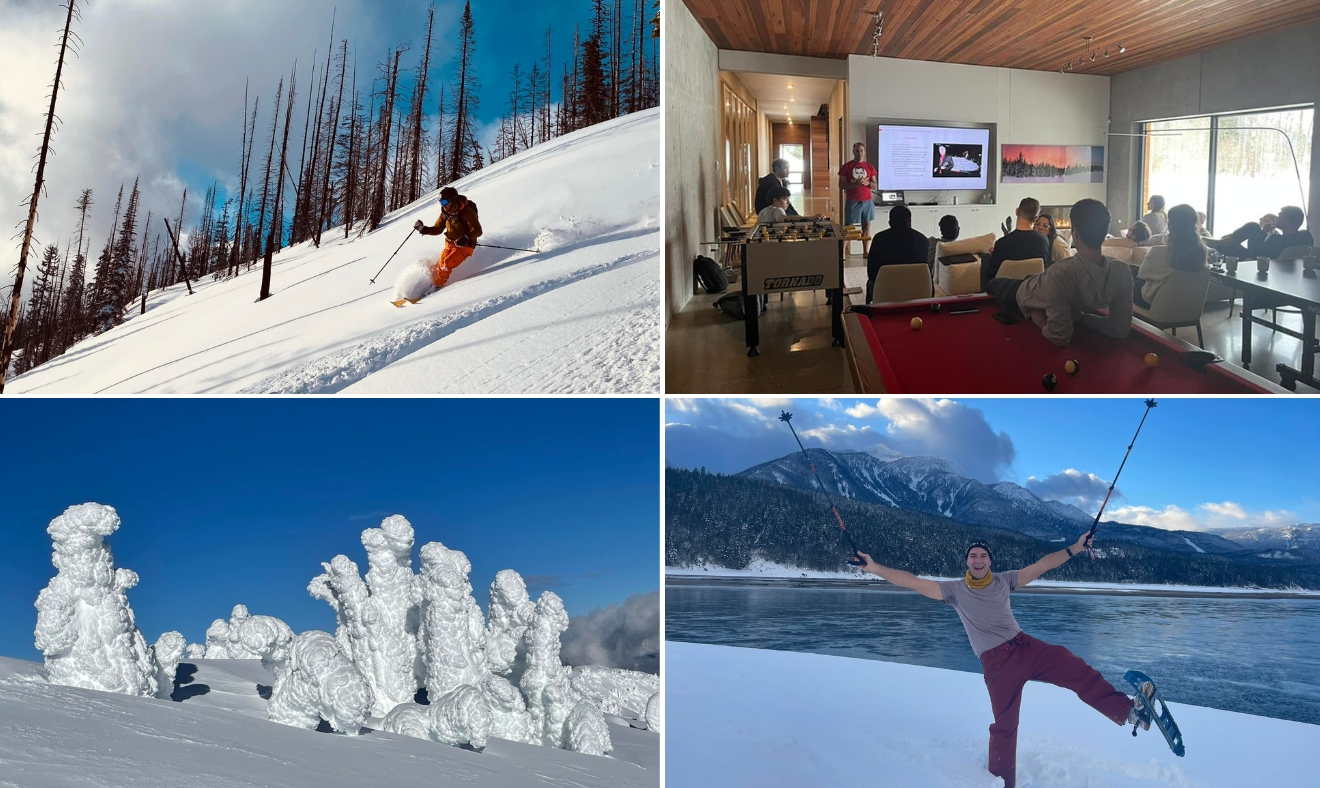
その後、2023年1月に予定されている南極大陸での極地遠征に向けたトレーニングのためにノルウェーに向かった。 ケビン・ライアンは、ヘラクレス入江から南極点までの1,100kmをハイキングし、海岸から極点まで氷上で50日以上を過ごす調査遠征「INSPIRE 22」のスポンサーにならないかと誘ってくれた。 彼らは極限状態における性別と食事の影響を研究している。 スポンサーとして、私たちは旅の最後の10日間に参加できる。
私はトレーニングのためにノルウェーのフィンセに向かった。 正直なところ、これまでに経験したことのないことだった。 私は熱帯地方で多くのサバイバル訓練を受けてきたが、寒さへの対処はまったく新しい要素をもたらした。 とんでもない量の専用ギアを買わなければならなかった。 その後、使い方を学ばなければならなかった:
- パルク(そり)にテント、寝袋、食料、雪を溶かして水を作るためのプロパンタンク、そしてすべての道具を詰める。
- 130ポンドのパルクを、ハーフスキンを付けた特別なスキーで引く。
- マイナス30度のコンディションで、ミトンをはめて風に向かってテントを組み立てる。
- 雪を溶かして飲料水にしたり、水で戻した食事を調理したりする。
- 慣れない環境で寒さと雪に対処するのが一般的だ。

この地方にいる間、私はスウェーデンに飛び、ニエクーでヘリスキーをすることに決めた。 その途中、キルナのアイスホテルで一泊した。 フランソワはどちらの体験も気に入ったようで、私が速く滑れば滑るほど、ヘリスキーのほうに夢中になってクンクンと歌い出した。 彼は私がスピードを落としたり、止まったりしたときだけ不快感を示した。

夏に山で過ごしたことはあまりない。 すでにフランスにいた私は、サンモリッツのゴージャスな山々をチェックし、ゴルジュ・デュ・ヴェルドンでキャニオニングを楽しむことにした。 その後、私は夏のレベルストークに向かった。 とても気に入ったので、毎年8月にまた行くつもりだ。 マウンテンバイク、ハイキング、スタンダップパドルボード、バギーなど、1ヶ月に及ぶマルチスポーツの冒険だった。 ブートキャンプのような感じだったけど、すごく楽しかった。

私は、バーニングマンが2年間の中断を経て2022年に復活することに興奮していた。 今年は弟のオリビエと一緒に行ったので、私にとって特別な年だった。 私は彼にコツを教えたり、アートの中をぶらぶら歩いたり、彼とのつながりを深めるのが大好きだった。

水害のために何年もかけて改築したニューヨークのアパートに、9月にようやく引っ越した。 このことを忘れて、やっと家に帰れたことをうれしく思う。 このアパートは本当に我が家のように感じられ、私のワーク・ライフ・バランスに重要な役割を果たしている。おかげで、ニューヨークでの知的、社交的、専門的、芸術的な生活と、タークス・カイコス諸島やレベルストークでのよりアスレチックでスピリチュアルな生活のバランスを取ることができる。 ダニエル・カーネマン、ジョー・スティグリッツ、ニコラス・トンプソンのような素晴らしい人々を迎えることができた。 大変喜ばしいことに、パデルがついにニューヨークにやってきた。 私の家から12分という便利な場所にあるパデルハウスで、数え切れないほどの時間を過ごした。

私は11月と12月にタークスに戻り、カイト、パデル、テニス、そして一般的に陽気である。 グリンダバースは12月10日に両親、叔父、真ん中の弟のクリス、いとこたちとともに到着し、12月16日以降は子供たちを連れた他の家族も加わった。 今年で3年目になるけれど、今年は特別な感じがする。 30人でドラマがなく、感謝と愛があるのはとても珍しいことだ。 来年はもっと多くのグリンダーバースメンバーが参加できることを願っています!
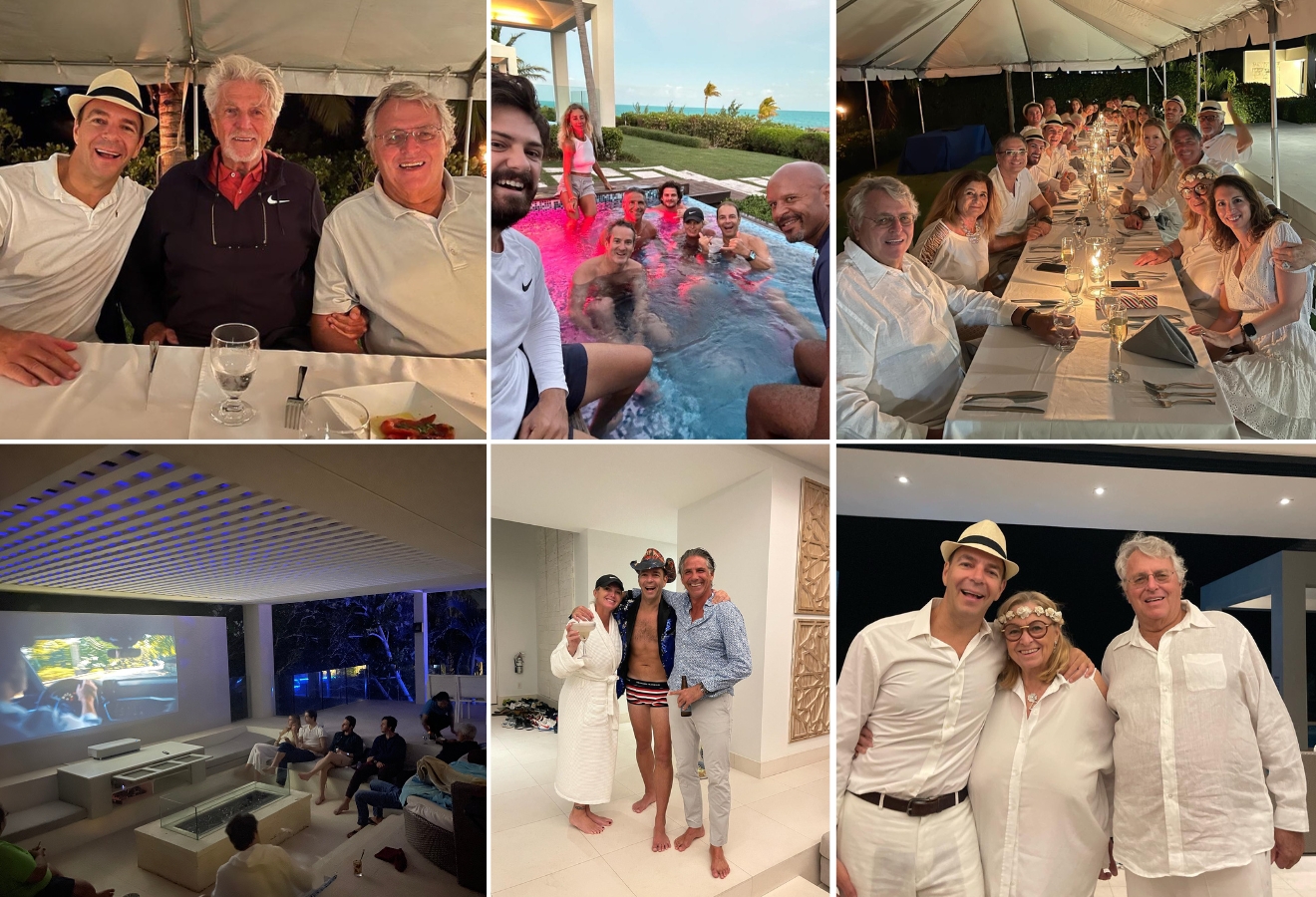
家族の大切さについてのブログ記事を書くには、フランソワが私の人生にいてくれたこと、そして彼の成長を見守ることができたことの素晴らしさを語らずにはいられない。 最初の2年間は、あまり積極的に話しかけてくれないので、楽しめないだろうと思っていた。 これ以上真実から遠いことはない。 ハイハイを覚え、最初の一歩を踏み出し、狂ったように走り回り、信じられないようなスピードで新しい言葉や概念を学んでいく。 また、彼は非常にコミュニケーション能力が高く、表現力も豊かなので、彼が何を望んでいるのかを正確に理解するのはとても簡単だ。 私は彼と一緒に車を転がしたり、彼が遊んでいるのを見ているだけで何時間も過ごすことができる。 私が赤ん坊の宝くじに当たったようなものだということも手伝っているのだろう。 驚くほど機嫌がよく、泣くこともなく、夜通し眠り、いつも幸せそうに見える。
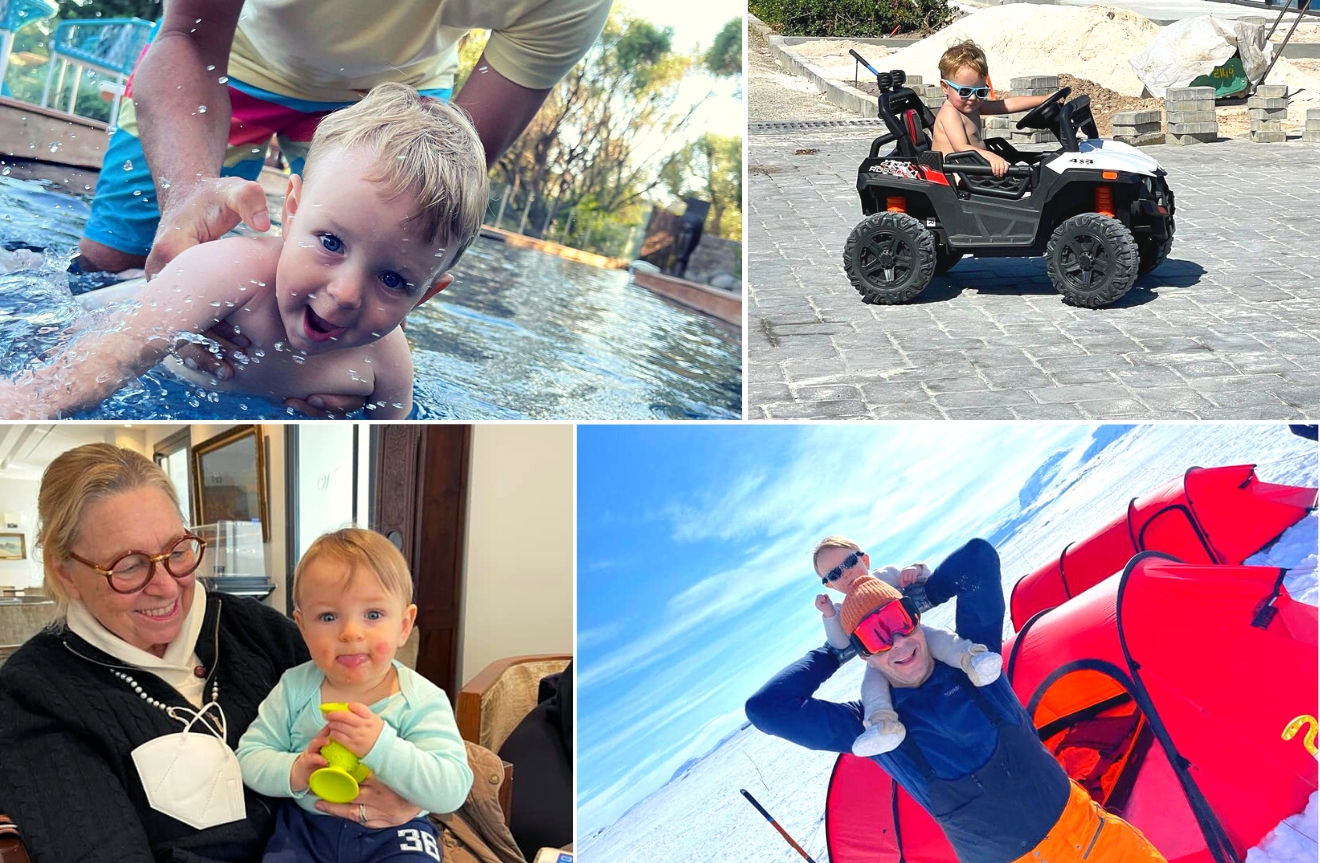
仕事面でも2022年は多忙を極めた。 私たちは、2021年にバブルが膨張していることを正確に察知し、その年の多くの時間を撤退の機会を追求することに費やした。 2022年、他社が縮小していくなか、私たちは逆張りをして積極的に投資することにした。
全体的にFJ研は揺るぎない。 2022年は過去最高の多産年だった。 チームは32人に増え、投資家対応部長やポートフォリオ部長といった重要な役割も加わった。 億ドルを投入した。 投資件数は308件で、うち182件が初回投資、126件がフォローオン投資だった。 Animocaと Clearcoのセカンダリーセールス、eBayによるTCGPlayerの買収、DespegarによるViajanetの買収、ヴィクトリアズ・シークレットによるAdoreMeの買収などである。 AdoreMeは、私たちが正式にインキュベートした最初の企業であり、私たちのEIR(Entrepreneur in Residence)プログラムの発端となったため、私たちにとって特別な企業でした。
ホセと私は24年前にエンジェル投資を始めて以来、989のユニークな企業に投資し、266のエグジット(部分的なエグジットを含む)を経験した。 IRRは39%、平均倍率は4.0倍であった。 合計で5億3,000万ドルを投入したが、そのうち1億7,300万ドルはホセと私が提供したものだ。
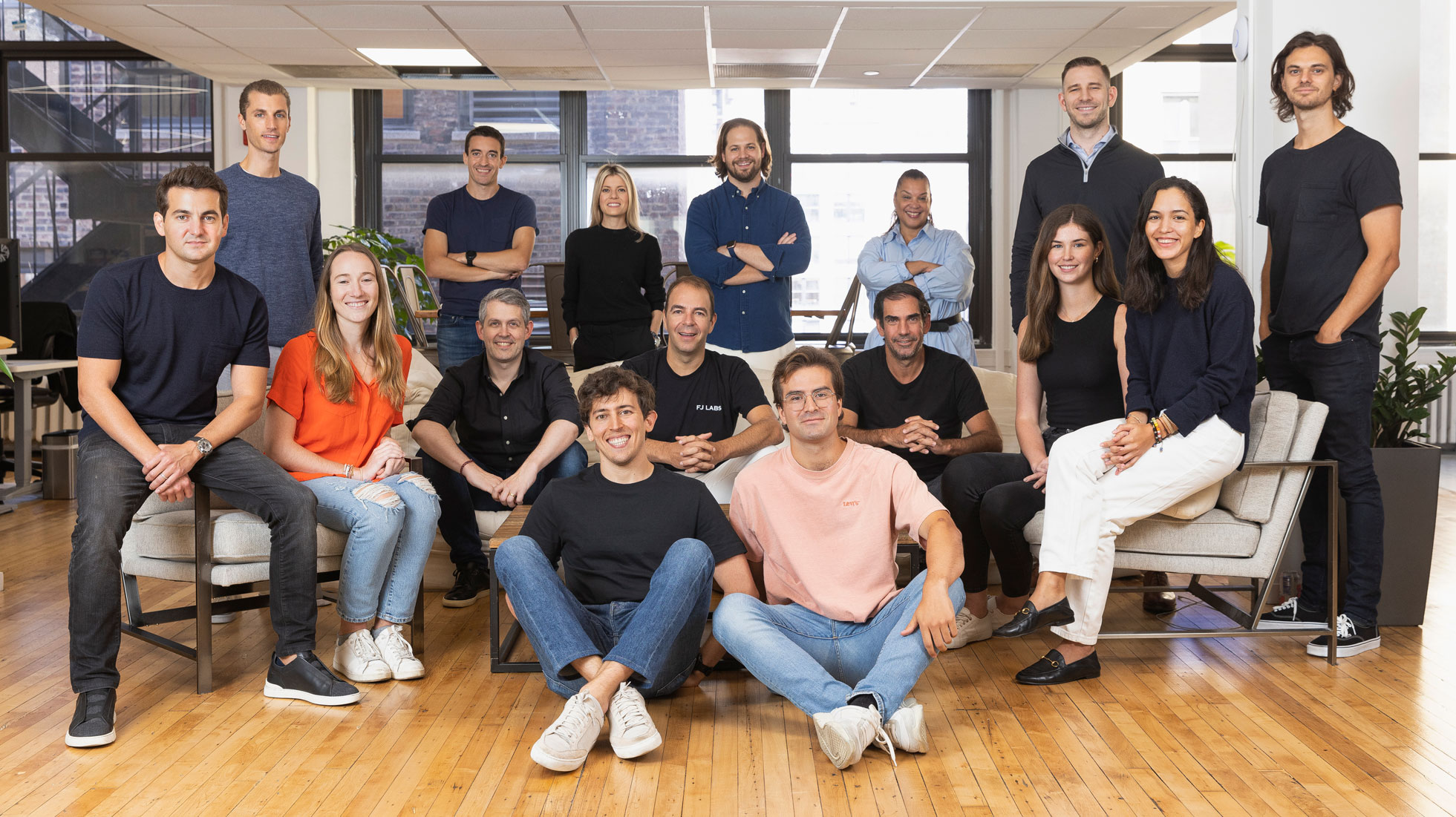
2022年に書きたいと思うことがよくあった。 マクロがミクロを凌駕する時代に入ったので、私はマクロ経済問題に焦点を絞った。 また、なぜ私が多くのことをするのかについても書いた。 私のベスト記事は以下の通りだ:
フランスで父の介護をしている間、ストリーミングの機材を持っていなかったので、『ユニコーンと遊ぶ』はあまり多くなかった。 しかし、私はインドのフィンテック・エコシステムを深く掘り下げるのが好きだった。 友人のオスカル・ハルトマンとも興味深い話をした。
例によって、私は非常に多読家だった。 私のお気に入りの本は
今年の私の罪滅ぼしは、SFソープオペラ『バックヤード・スターシップ』シリーズだった。
私の2022年の予測は当たったり外れたりした。私は、後発技術のバリュエーションが修正され、アートNFTのバブルが崩壊すると正しく予測した。 暗号は米国のマクロ経済環境や内生的なショックにさらされると考えていたが、テラやFTXよりもテザーについて心配していた。
ウクライナで戦争が起こる可能性も割り引いた。 私は、「中国が台湾を、ロシアがウクライナを攻撃する事故は、可能性は低いとはいえ、依然として起こりうる」と書いたが、それが起こるとは思っていなかった。
2021年後半、私は、コンセンサスが弱気であるということは、実際には、失業率を低く抑えながらインフレをコントロールすることはできないのではないか、と考えていた。 しかし、私は年内にハードピボットを行い、コンセンサスは弱気には十分ではないと結論づけた。 冬がやってくる』で強調したように、私が弱気になっている要因は9つある:
- 金利は人々が予想する以上に長期にわたって上昇する可能性がある。
- ドル高が新興国の政府債務危機を引き起こしている。
- 天然ガス価格の高騰はドイツの景気後退を引き起こすだろう。
- 新たなユーロ危機が迫っている。
- 銀行危機が目前に迫っている。
- 不動産価格は下落しようとしている。
- ウクライナとロシアで紛争が続けば、穀物、ガス、石油の価格は高止まりするだろう。
- 中国はもはや経済成長とディスインフレの力ではない。
- 構造的に高い地政学的リスク
これら9つの要因のどれか1つでもあれば、世界同時不況を引き起こすのに十分だろう。 私が心配しているのは、これらすべてが同時に起きていることであり、2007年から2008年にかけての大不況の再来を示唆していることだ。
私は通常、この部屋で最も楽観的な人間だが、これほど弱気になったのは2006年以来だ。 私はまだ確率論的に考えているが、今は深刻な景気後退の確率が穏やかな景気後退の確率を上回ると考えている。
完結させるために、より楽観的な結果に向けて確率の重さを再評価させるような事柄を挙げる価値がある。 ウクライナとロシアの紛争が確実に終結し、インフレが落ち着けば、私はもっと悲観的になるだろう。
私も短期的には暗号には極めて弱気だ。 2022年はアニュス・ホリビリスであったが、暗号にはまだいくつかのダモクレスの剣がぶら下がっている:
- ジェネシスの破綻の可能性と、DCGとGBTCへの影響。
- バイナンスが規制上、あるいは経済的に存続可能かどうか。
- テザーに対する懸念の継続。
ブロックチェーン技術の可能性については引き続き極めて強気であるが、より積極的に市場に参入する前に、上記のいくつかの問題が明確になり、マクロ的な動きが落ち着くのを傍観している。 私たちは2021年11月から2022年1月までの間にほとんどのポジションを手仕舞いし、現在、暗号戦略の96%を現金で保有している。 私の懸念がある程度解消され、金利が低下し始め、次のBTC半減が2024年半ばに近づけば、再参入するのではないかと思う。
私はマクロ的には弱気だが、アーリーステージの新興企業には極めて強気だ。 バリュエーションは妥当だ。 創業者たちはユニット経済に注目している。 少なくとも2年間は市場に出す必要がないよう、キャッシュバーンを制限している。 新興企業は顧客獲得コストが低く、競争相手も少ない。 退場は過去数年よりも遅れ、退場倍率は下がるだろうが、これは参入価格の低下と、勝者がカテゴリー全体を制するという事実によって補われるはずだ。
これらの新興企業にとって重要なマクロは、現在の環境ではなく、彼らがエグジットを求める6~8年後のマクロである。 今のところ、重要なのは彼らが十分な資金を調達し、次の資金調達に十分な成長を遂げることだ。
逆張りをして、他の誰もが縮小しているときに投資するのは得策だ。 過去10年間で最も優れたスタートアップへの投資は、2008年から2011年の間に行われた(Uber、Airbnb、Whatsapp、Instagram)。
しかも、私たちはまだテクノロジー革命の初期段階にいる。 私は、これまでテクノロジー革命が手つかずだった分野に、テクノロジーのデフレパワーを発揮できる立場にあることに興奮している:B2B、教育、医療、公共サービス、そして気候変動危機に対処するために自然エネルギーをより安価で実現可能なものにし続ける。
この1年を過ごせたことに非常に感謝している。 家族全員が健康になり、素晴らしい冒険に出かけ、有意義な仕事をし、休日にグリンダーバースを一緒にできたことは、この上ない幸せだ。
2023年に向けてワクワクしている。 南極点へのトレッキングに出発し、2週間、世界全体から完全に切り離されることになる。 肉体的に挑戦的で、精神的に目覚めさせられ、自分の考えと向き合う素晴らしい時間であると同時に、チームメイトとの絆を深める経験になると期待している。 その先には、母をバーニングマンに連れて行こうと思っている。 あとは彼女を乗せるのに適当なアートカーを作るだけだ。 フランソワとのクレイジーな冒険も楽しみにしている。 私は今、カイトサーフィンをしている間、彼を私の背中にくっつける方法を見つけようと画策している。 その先には、ウィングフォイルを学ぼうと思っている。 また、2023年の春には、ついに白いジャーマン・シェパードのエンジェルを家族に迎え入れたいと思っているので、グリンダバースが少なくとも一人、新しいメンバーによって拡大することを願っている。
一年の締めくくりは、また家族で集まろう。 今回、私のタークス滞在は極地での冒険で短縮されることはないだろう。 私は1月までトライトンをキープし、ヨーロッパから子供連れの家族がより多く来日できるようにする。 一族の歴史に関する映画で彼らを喜ばせるのが楽しみだ。 オリビエと私は、家族へのプレゼントとしてこの映画を依頼した。 この映画は、両親、弟クリストファー、そして家族全体へのラブレターであると同時に、私たちの著名な先祖を取り上げる予定だ。 これは、彼らの貢献を称え、私たちが男らしくなるために彼らが果たした役割に感謝の意を表すためのものである。
素晴らしい2023年に乾杯 新年おめでとう!
